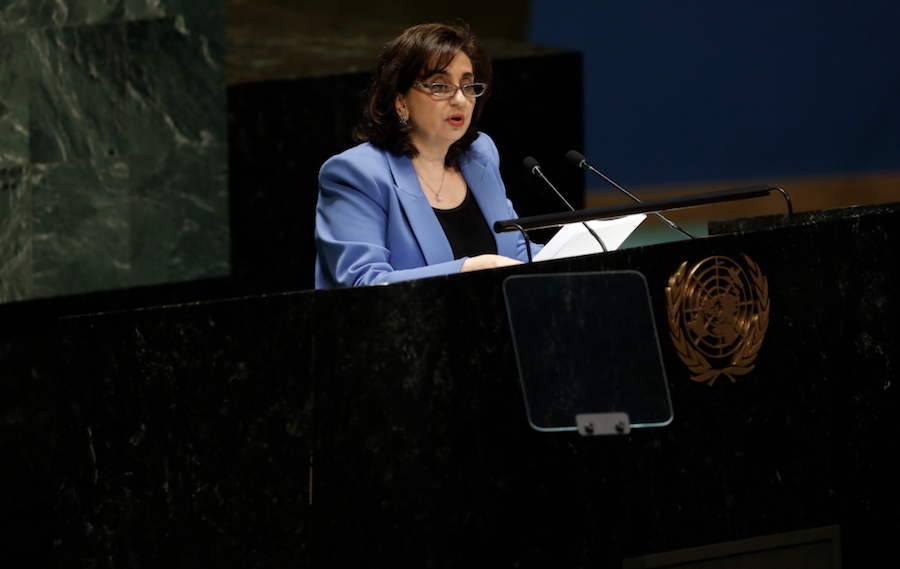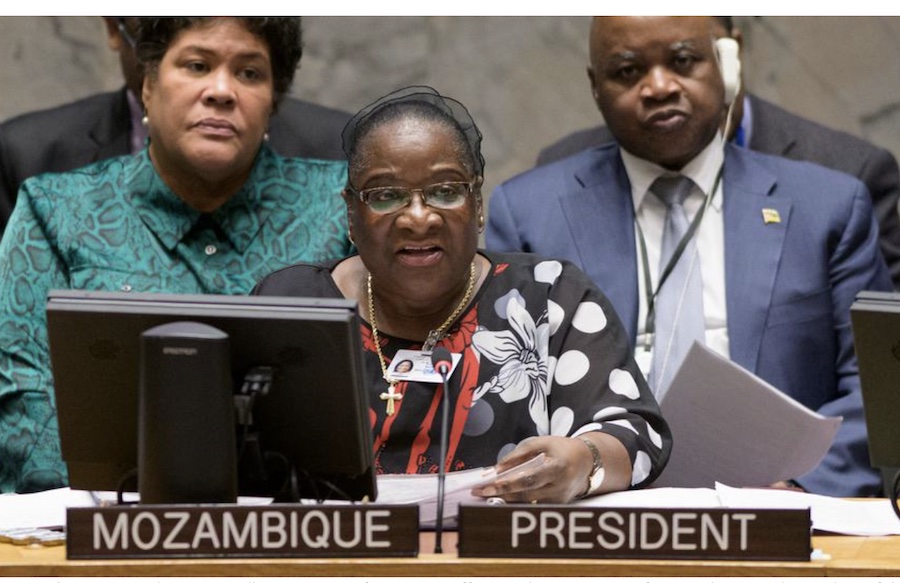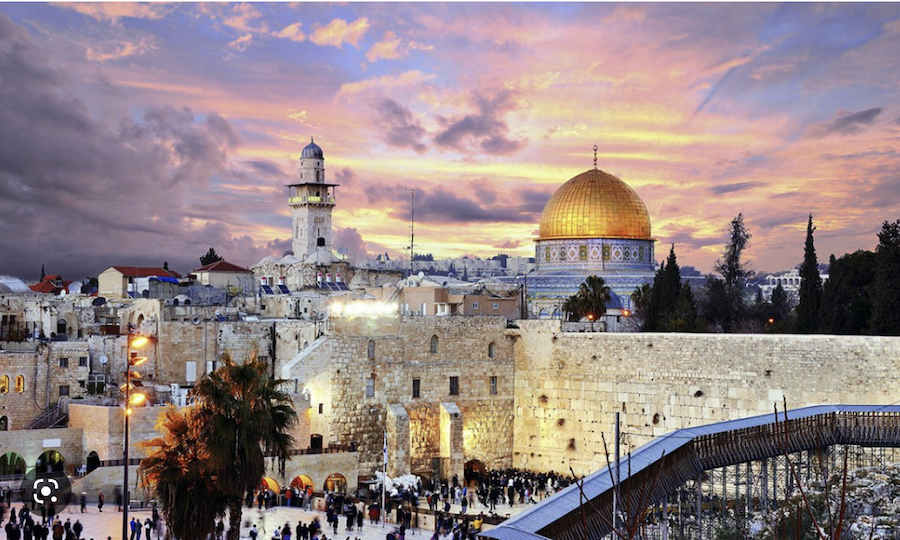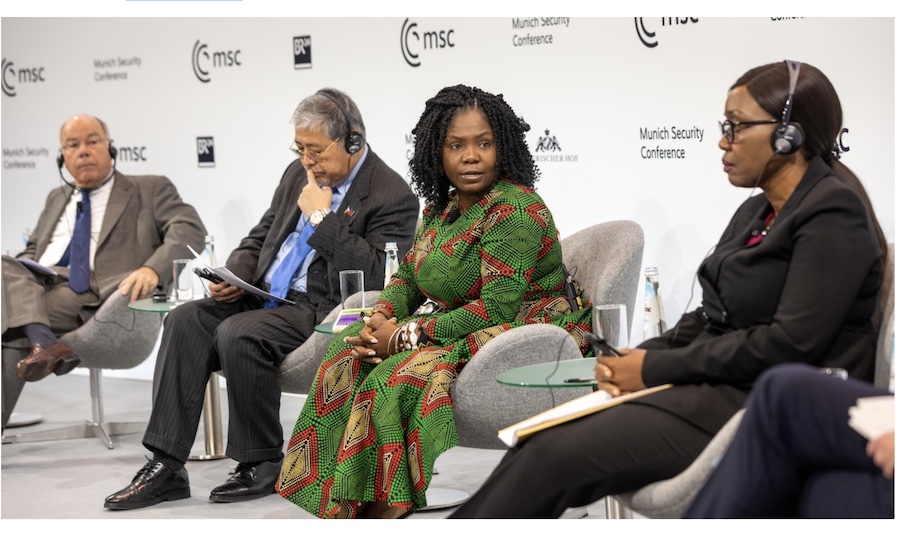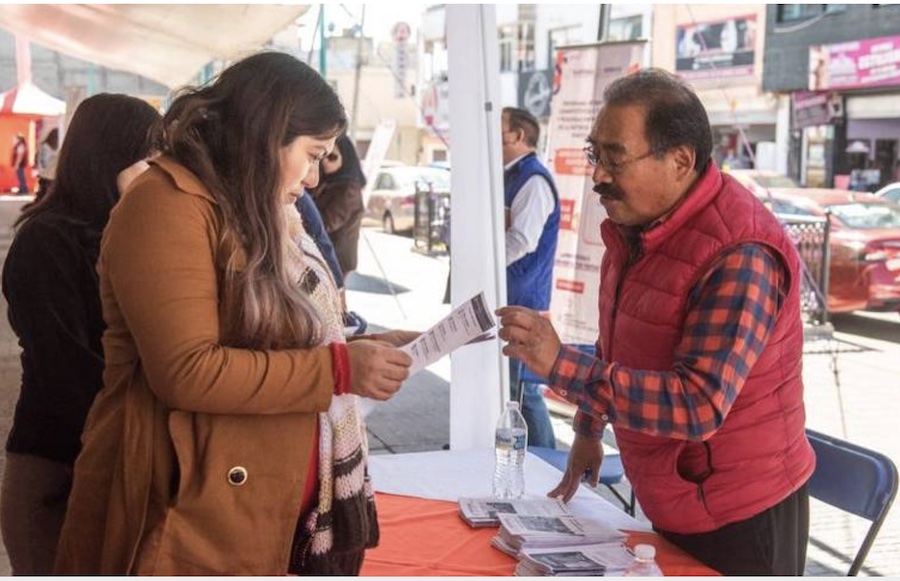.. DEMOCRATIC PARTICIPATION ..
A press release from the Inter-Parliamentary Union
According to the latest IPU report, Women in Parliament 2022, women’s participation in parliament has never been as diverse and representative as it is in many countries today. And for the first time in history, not a single functioning parliament in the world is male-only.

Celia Xakriaba, a climate activist, is one of 4 indigenous women to be elected to the Brazilian Parliament. Photo from Wiki Commons.
The findings in the annual IPU report are based on the 47 countries that held elections in 2022. In those elections, women took an average 25.8% of seats up for election or appointment. This represents a 2.3 percentage point increase compared to previous renewals in these chambers.
Brazil saw a record 4,829 women who identify as black running for election (out of 26,778 candidates); in the USA, a record number of women of colour (263) stood in the midterm elections; LGBTQI+ representation in Colombia tripled from two to six members of the Congress; and in France, 32 candidates from minority backgrounds were elected to the new National Assembly, an all-time high of 5.8% of the total.
Other positive trends include technological and operational transformations, largely due to the COVID-19 pandemic, which have increased the potential for parliaments to become more gender-sensitive and family-friendly. The influence of gender issues on election outcomes, with increased awareness of discrimination and gender-based violence, as well as alliances with other social movements, also helped drive strong results for women in some of the parliamentary elections.
However, overall progress towards global gender equality remains painfully slow: the global share of women in parliaments stood at 26.5% on 1 January 2023, a year-on-year increase of only 0.4 percentage points, the slowest growth in six years.
Mixed regional findings
Overall, six countries now have gender parity (or a greater share of women than men) in their lower or single chamber as of 1 January 2023. New Zealand joined last year’s club of five consisting of Cuba, Mexico, Nicaragua, Rwanda and the United Arab Emirates (UAE), at the top of the IPU’s authoritative global ranking of women in parliament.
Other notable gains in women’s representation were recorded in Australia (the strongest outcome of the year with a record 56.6% of seats won by women in the Senate), Colombia, Equatorial Guinea, Malta and Slovenia.
High stakes elections in Angola, Kenya and Senegal all saw positive strides for women. Wide divides characterized results in Asia: record numbers of women were elected to the historically male-dominated Senate in Japan but in India, elections to the upper chamber led to women occupying only 15.1% of seats, well below the global and regional averages.
The Pacific saw the highest growth rate in women’s representation out of all the regions, gaining 1.7 percentage points to reach an overall average of 22.6% women in parliament. Every Pacific parliament now has at least one woman legislator.
In the 15 European chambers that were renewed in 2022, there was little shift in women’s representation, stagnating at 31%.
(continued in right column)
How can parliamentarians promote a culture of peace?
Prospects for progress in women’s equality, what are the short and long term prospects?
(continued from left column)
In the Middle East and North Africa region, seven chambers were renewed in 2022. On average, women were elected to 16.3% of the seats in these chambers, the lowest regional percentage in the world for elections held in the year. Three countries were below 10%: Algeria (upper chamber: 4.3%), Kuwait (6.3%) and Lebanon (6.3%).
Bahrain is an outlier in the region with a record eight women elected to the lower chamber, including many first-time lawmakers. 73 women ran for election to the lower chamber (out of a total of 330 candidates) compared with the 41 women who ran in the last election in 2018. Ten women were also appointed to the 40-member upper chamber.
Quotas work
Legislated quotas were again a decisive factor in the increases seen in women’s representation. Legislated quotas enshrined in the constitution and/or electoral laws require that a minimum number of candidates are women (or of the under-represented sex). Chambers with legislated quotas or combined with voluntary party quotas produced a significantly higher share of women than those without in the 2022 elections (30.9% versus 21.2%).
Women’s leadership on climate change
Women in Parliament 2022 gives several examples of female climate leadership including Prime Minister Sanna Marin of Finland, who has pushed for net zero by 2035, and Prime Minister Mia Mottley of Barbados, who is aiming to phase out fossil fuels by 2030.
At COP27, the UN Climate Change Conference, Senator Sherry Rehman, the Minister of Climate Change in Pakistan, was one of the prominent advocates which led to the successful establishment of a loss and damage fund to support poorer countries who are greatly affected by climate change. However, despite this leadership, women continue to be under-represented in decision-making positions on climate. For example, women accounted for less than 34% of country negotiating teams and only 7 out of 110 Heads of State present at COP27.
Quotes from IPU leadership
Lesia Vasylenko, President of the IPU Bureau of Women MPs.
“Every woman who is elected brings parliaments one step closer to becoming more inclusive and representative. And it’s great to see much more diversity this year in many elections around the world. But overall progress is far too slow, with half the world’s populations still vastly under-represented. There is an urgent need to change this to strengthen democracy everywhere.”
Duarte Pacheco, IPU President
“The only way to make real progress toward achieving gender equality in parliaments is to share the responsibility between men and women. I call on my male colleagues in every parliament in the world to work with their female counterparts to move forward and accelerate the pace of change.”
Martin Chungong, IPU Secretary General
“Our research shows that there are still too many barriers preventing women from entering parliament or indeed forcing them to leave politics, as we have seen recently. We have the data, tools and solutions to make gender equality a reality by, for example, making parliaments gender-sensitive and free of sexism, harassment and violence. What we now need is the political will at the highest level to make it happen.”
***
The IPU is the global organization of national parliaments. It was founded more than 133 years ago as the first multilateral political organization in the world, encouraging cooperation and dialogue between all nations. Today, the IPU comprises 178 national Member Parliaments and 14 regional parliamentary bodies. It promotes democracy and helps parliaments become stronger, younger, gender-balanced and more representative. It also defends the human rights of parliamentarians through a dedicated committee made up of MPs from around the world.
